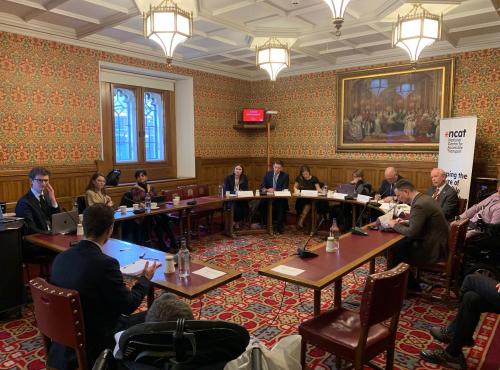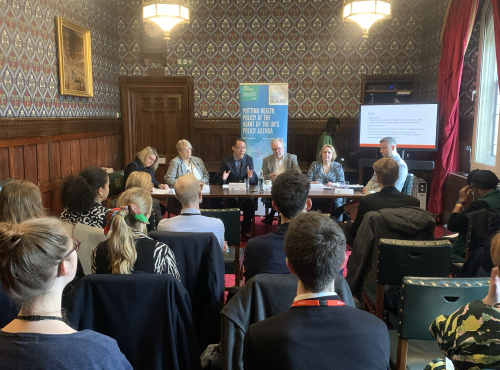Is the Government finally waking up to our embarrassing plastic export problem?
You may have noticed that plastic pollution has dropped out of headline news. Just two years ago, we were loudly celebrating the ban of plastic micro beads, but now, society is quietly wondering if it is OK to start eating pre-wrapped salads again. However, while the media circus has largely moved on, the fight for significant policy change continues. In this week's blog, Jake Ainscough discuss what more needs to be done to address Britain's plastic waste exports problem.
It may be easy to critique the minor victories of micro bead and plastic straw bans, as these products only make up about 1% of marine plastic litter between them, however these changes were part of a wider package of policy that has yet to come to fruition.
The Government’s proposal to have packaging producers pay 100% of the cost of dealing with plastic waste is potentially game changing – especially for cash strapped local authorities. The promised deposit return scheme could see a big boost in on-the-go recycling, a notoriously tricky area. Plans to bring consistency to the endless diversity of recycling collection schemes across the country will come as a relief to the rising number of conscientious consumers across the UK.
These are all common sense steps, as highlighted in our Plastic Packaging Plan, but not only are they unlikely to be seen until 2023 at the earliest, they are also not enough. The big story was never what happens to plastics here in the UK – only about 2% of marine plastics come from US and European shores combined - the big story is what happens to our plastic waste when it is shipped overseas.
Roughly two thirds of all the plastic waste we collect for recycling is shipped abroad. Since China introduced a ban on imports in 2018, the top five countries taking our waste are Malaysia, Turkey, Poland, Indonesia and the Netherlands. Two of these, Malaysia and Indonesia, are amongst the top ten source nations of marine plastics in the world. Malaysia is clearly unequipped to handle this increased inflow of, at times, very low quality plastic waste. Stories of UK waste being abandoned in landfill or openly burnt have come to light, and both Indonesia and Malaysia have begun sending back contaminated consignments of plastics.
If we want to responsibly deal with our plastic waste, we have to end the offshoring of the problem, but this cannot be done without government initiative, and yet the Resources and Waste Strategy containing the policies above was strangely silent on the export issue.
There are some encouraging signs the new Government may finally have woken up to the problem. The Queen’s speech included an intention to ban the export of plastic waste to countries outside the OECD. Such a move would take Malaysia and Indonesia out of the mix, but raises questions about where this excess material would go and if OECD countries are equipped to deal with it. Concerns have already been raised over the ability of Turkey – a founding member of the OECD - to handle increased imports since the ban set by China. Here too, familiar stories of landfilling, incineration and open dumps have emerged.
As we laid out in our Plastic Packaging Plan early last year, the only real solution is to move away from all plastic exports by incentivising and investing in domestic recycling capacity. Setting a clear end date of 2030 for plastic exports will provide certainty for industry without imposing a sudden ban that could see recyclable waste sent to landfill or incineration. Such an approach would not only ensure our waste is handled responsibly, but would also provide good, green jobs in the UK as we move towards a circular economy for plastics.



